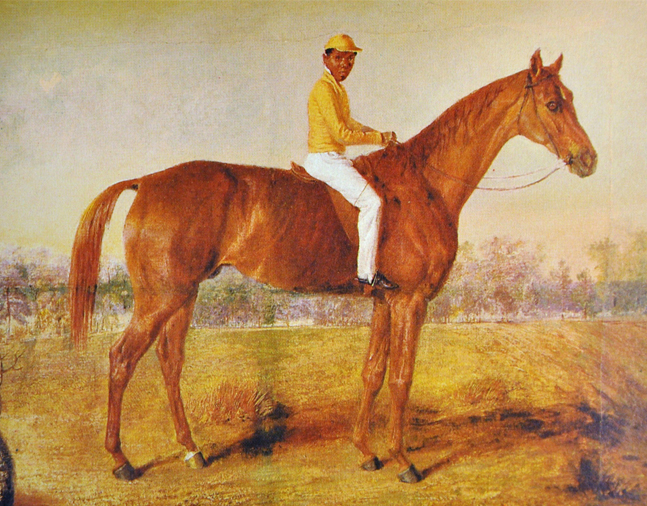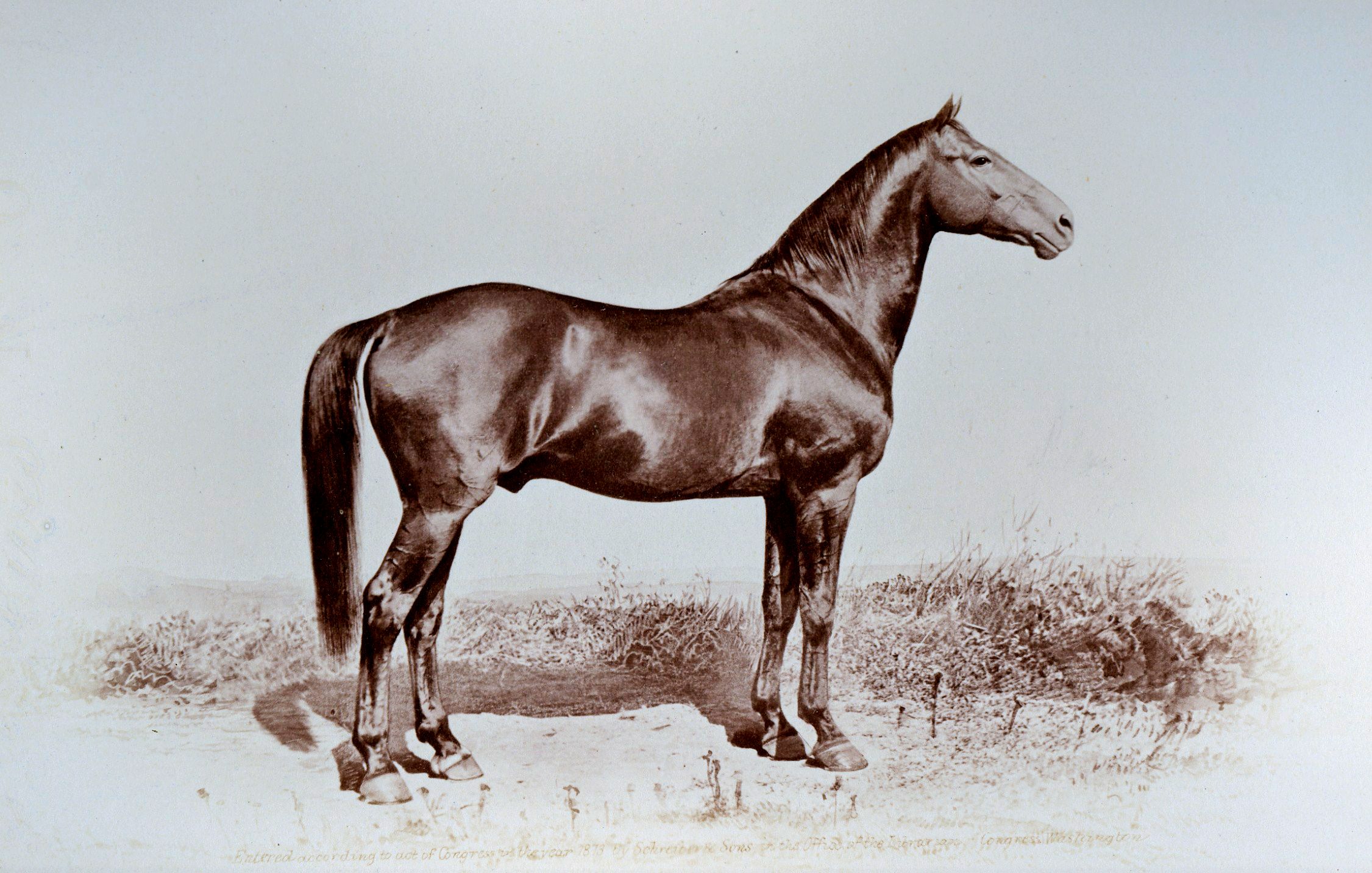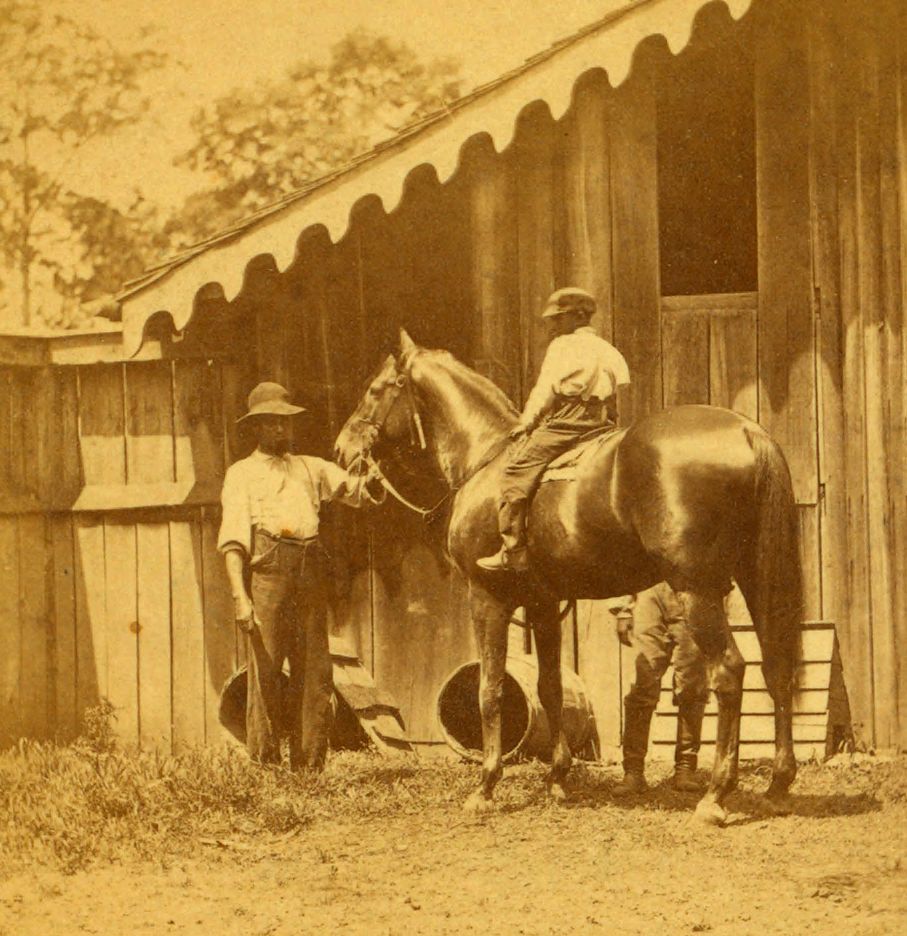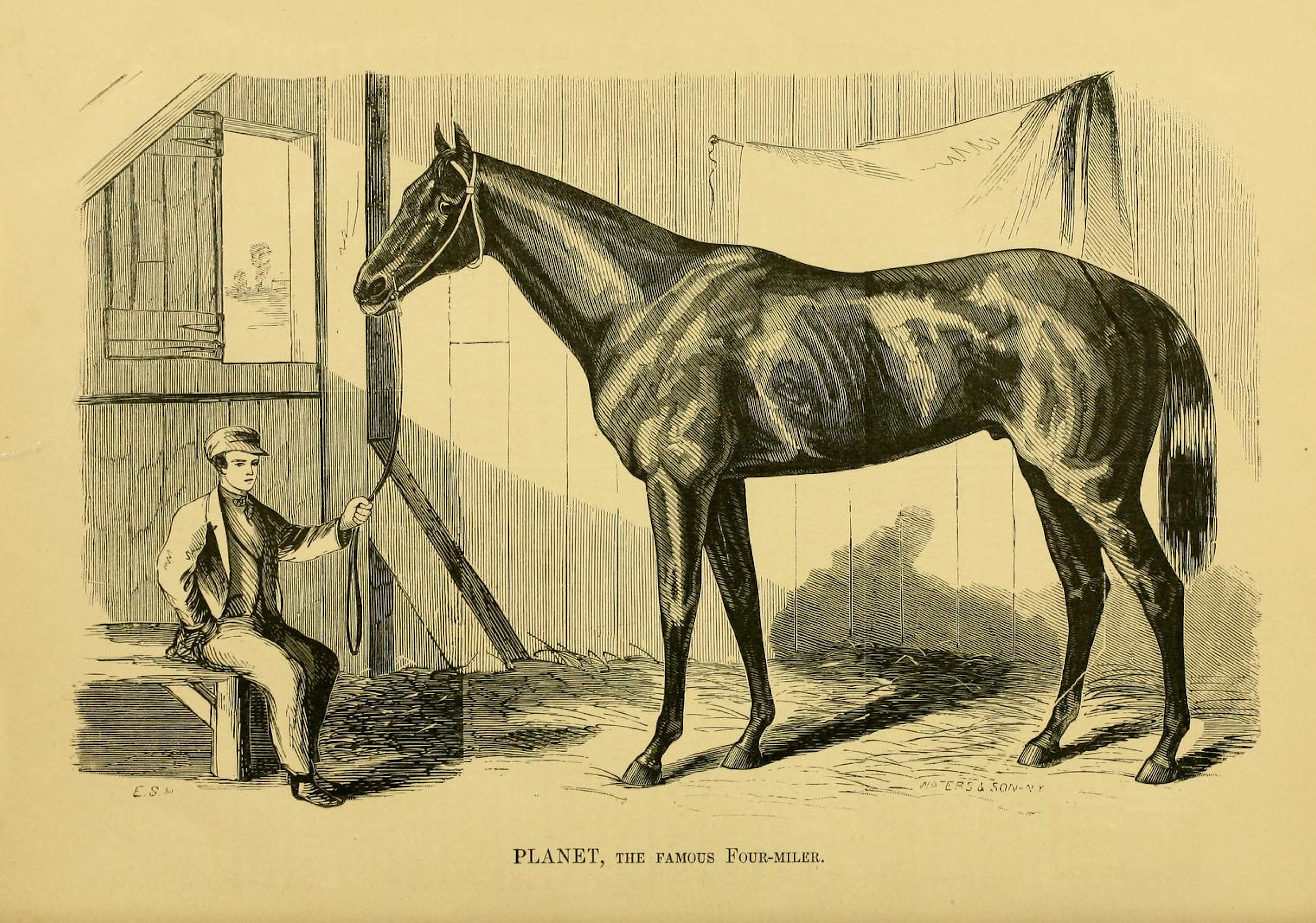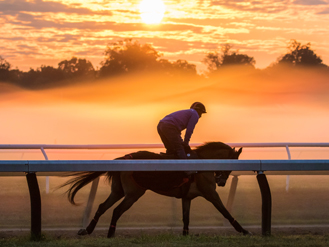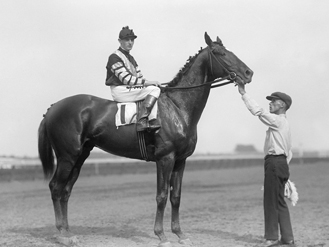Planet (VA)
Following the retirement of the great Lexington, Maj. Thomas Doswell’s Planet was considered the finest racehorse in America in the years leading up to the Civil War.
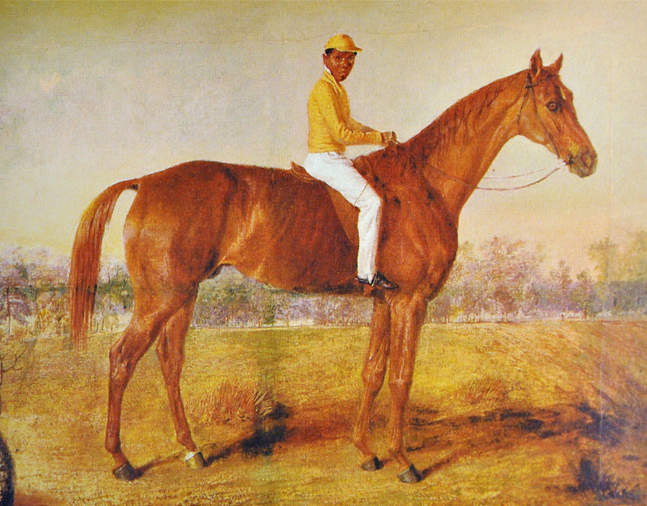
2012
1855
Revenue
Nina
Boston
Bullfield Stable
Maj. Thomas Doswell
N. B. Young
1858-1861
$69,700
Racing Record
28
Starts
| 1858 | 3 | 3 | 0 | 0 | $0 $0 |
| 1859 | 11 | 10 | 1 | 0 | $0 $0 |
| 1860 | 9 | 8 | 1 | 0 | $0 $0 |
| 1861 | 5 | 3 | 2 | 0 | $0 $0 |
Biography
Following the retirement of the great Lexington, Maj. Thomas Doswell’s Planet was considered the finest racehorse in America in the years leading up to the Civil War.
A son of Revenue out of the Boston mare Nina, Planet was foaled at Doswell’s farm in Hanover County, Virginia, in 1855. He arrived at the races as a 3-year-old in 1858 and went on to win 24 of his 28 verified lifetime starts (some sources credit Planet with 27 wins from 31 starts) and earned $69,700, a record that stood for more than 20 years.
Planet, nicknamed “The Great Red Fox,” boasted a significant pedigree. Revenue was the top sire of 1850 and Nina was regarded as the best racing daughter of Boston, one of the greatest racers and stallions of all time.
Planet won at all distances, but he was most accomplished as a four-miler, winning four-mile heat sweepstakes and Jockey Club purses in Louisiana, Virginia, Georgia, and South Carolina, as well as numerous two- and three-mile heats at various locations, including the Fashion Course in New York. He defeated the top horses of his era, including Arthur Macon, Daniel Boone, Socks, Congaree, and Hennie Farrow.
In his book “Racing in America, 1665-1865,” John Hervey described Planet as being “in color a rich chestnut, 15.2½ hands tall, remarkable for his symmetry of mould and the excellence of his limbs.” By the time he was a 4-year-old, Planet’s reputation “had become that of another Lexington or Boston and all eyes were fixed on him.”
Planet was still racing successfully as a 6-year-old in 1861 when the bombardment of Fort Sumter curtailed racing throughout the South, thus ending his career. Planet’s earnings bested the previous mark of $62,400 by Peytona, which had stood for 16 years.
The Civil War had a deleterious effect on Planet’s career as a sire. Hidden in the woods during the war, Planet escaped capture when Bullfield was subjected to raiding, but in many of his prime years as a stallion he received limited opportunities to breed. Planet was purchased by R. A. Alexander’s Woodburn Farm in 1868, but his opportunities there were that of a second-string sire.
Planet was generally an afterthought as a stallion at Woodburn, covering only the mares not reserved for the farm’s top stallions, Lexington and Australian. He died at the legendary Kentucky nursery on Sept. 3, 1875, at the age of 20.
Media
